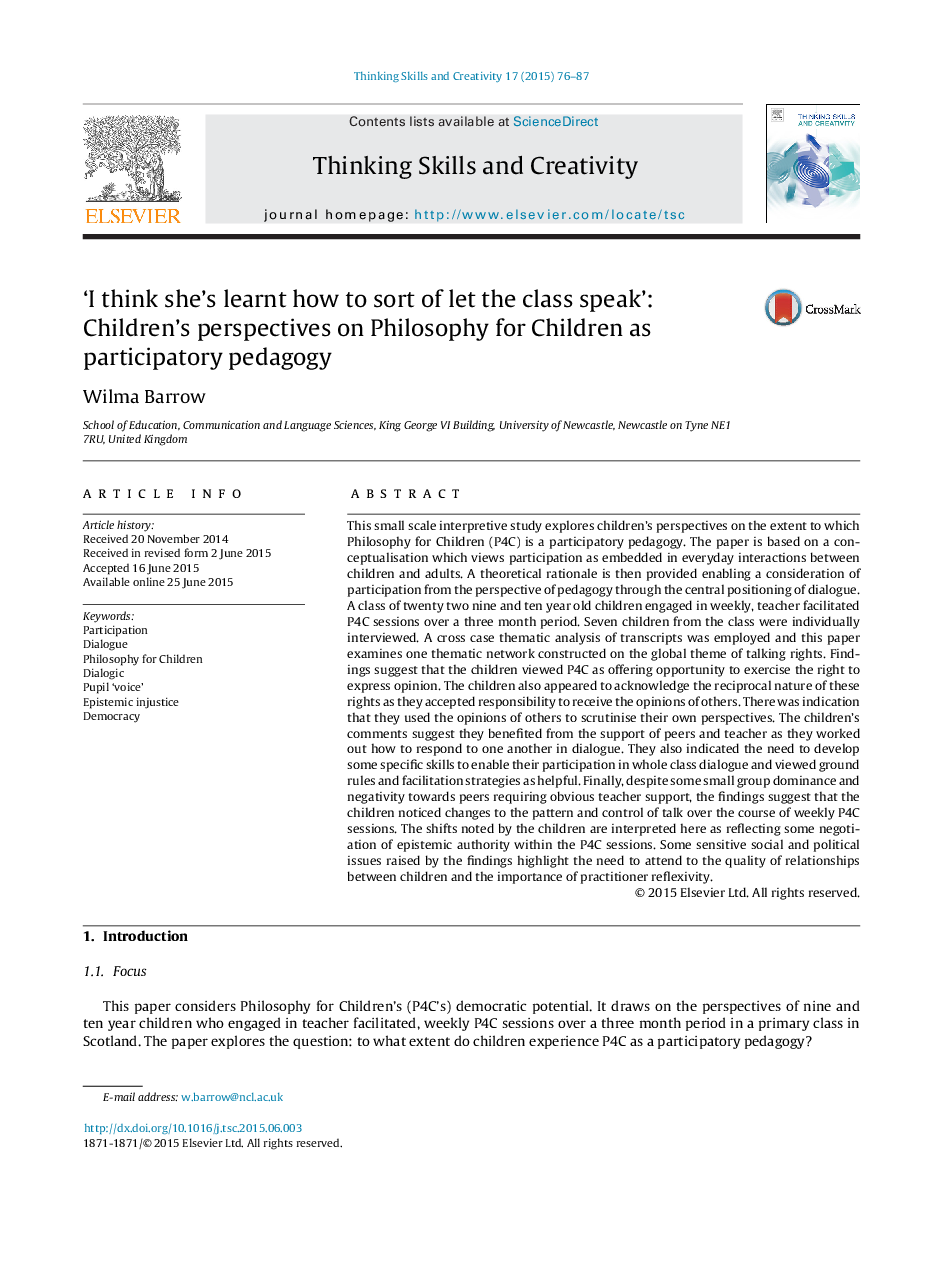| Article ID | Journal | Published Year | Pages | File Type |
|---|---|---|---|---|
| 6851982 | Thinking Skills and Creativity | 2015 | 12 Pages |
Abstract
This small scale interpretive study explores children's perspectives on the extent to which Philosophy for Children (P4C) is a participatory pedagogy. The paper is based on a conceptualisation which views participation as embedded in everyday interactions between children and adults. A theoretical rationale is then provided enabling a consideration of participation from the perspective of pedagogy through the central positioning of dialogue. A class of twenty two nine and ten year old children engaged in weekly, teacher facilitated P4C sessions over a three month period. Seven children from the class were individually interviewed. A cross case thematic analysis of transcripts was employed and this paper examines one thematic network constructed on the global theme of talking rights. Findings suggest that the children viewed P4C as offering opportunity to exercise the right to express opinion. The children also appeared to acknowledge the reciprocal nature of these rights as they accepted responsibility to receive the opinions of others. There was indication that they used the opinions of others to scrutinise their own perspectives. The children's comments suggest they benefited from the support of peers and teacher as they worked out how to respond to one another in dialogue. They also indicated the need to develop some specific skills to enable their participation in whole class dialogue and viewed ground rules and facilitation strategies as helpful. Finally, despite some small group dominance and negativity towards peers requiring obvious teacher support, the findings suggest that the children noticed changes to the pattern and control of talk over the course of weekly P4C sessions. The shifts noted by the children are interpreted here as reflecting some negotiation of epistemic authority within the P4C sessions. Some sensitive social and political issues raised by the findings highlight the need to attend to the quality of relationships between children and the importance of practitioner reflexivity.
Related Topics
Social Sciences and Humanities
Psychology
Developmental and Educational Psychology
Authors
Wilma Barrow,
